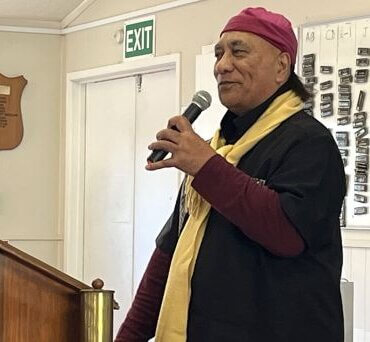
Ulu discussed the basics of cause and effect while in Cambridge.
A celebrated Samoan-born businessman who made history as New Zealand’s first Pasifika computer science graduate and the first to earn an MBA, spoke last week on the value to his life of ‘cause and effect’.
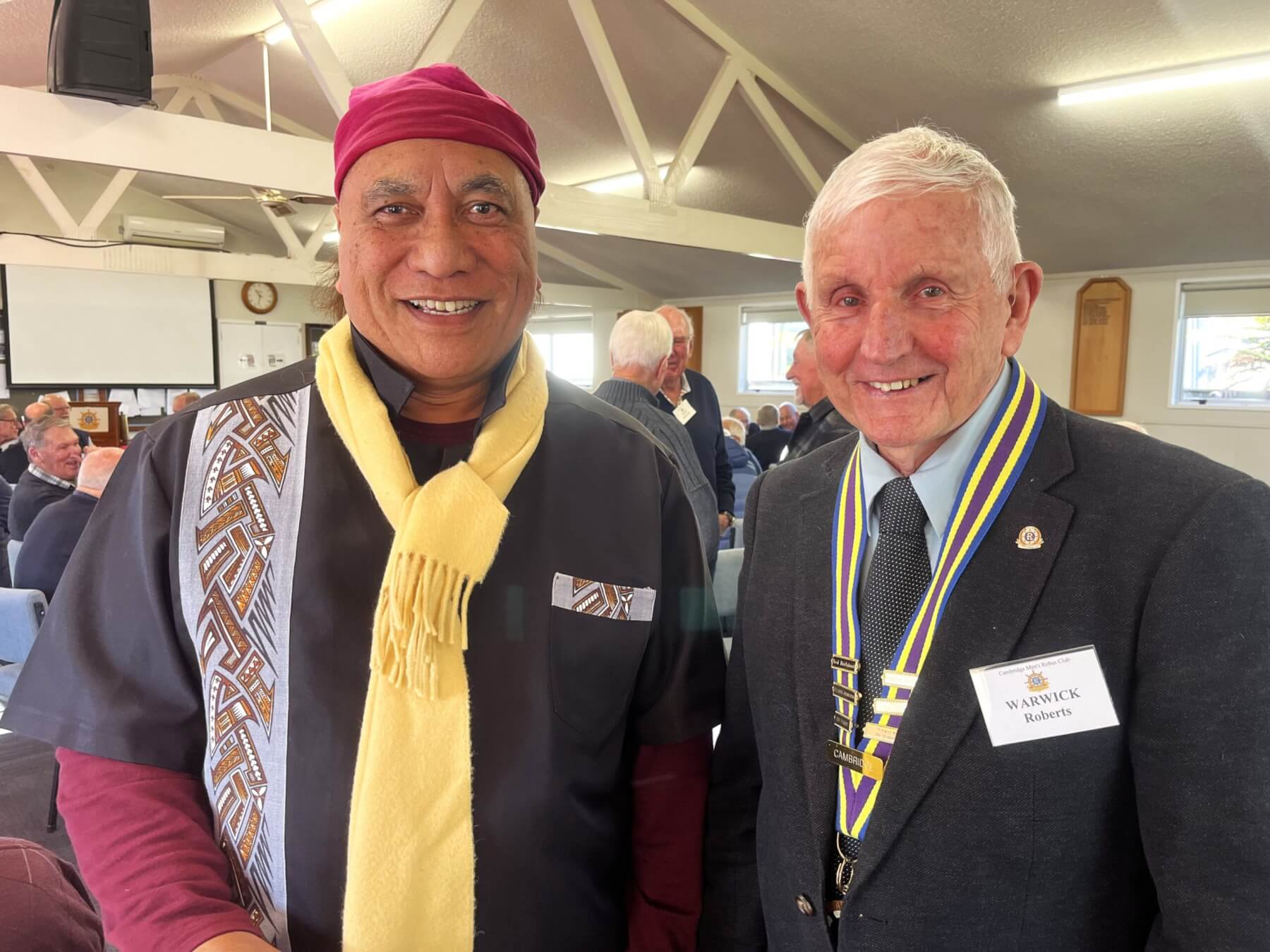
Uluomato’otua (Ulu) Saulaulu Aiono ONZM with Cambridge Men’s Rebus president Warwick Roberts at last week’s meeting. Photo: Viv Posselt
Auckland-based Uluomato’otua (Ulu) Saulaulu Aiono ONZM spoke at the Cambridge Men’s Rebus Club’s monthly meeting.
Already the recipient of a New Zealand Order of Merit, awarded in 2012 for services to business, he recently became one of two ‘visionary Pacific leaders’ in New Zealand who received honorary doctorates. He was recognised by the University of Otago with an honorary doctorate of commerce, while his co-recipient, Dame Winnie Laban DNZM, was recognised with an honorary doctorate from the Victoria University of Wellington.
The latest is among a raft of awards Ulu, as he prefers to be called, has received. They include the Pacific Business Trust Enterprise Award in 2015, his induction in 2022 into the New Zealand Business Hall of Fame alongside Graeme Hart, and his presentation in 2023 of Auckland Grammar School’s ‘Augusta Award’, presented to former students at the top of their respective industries or specialities.
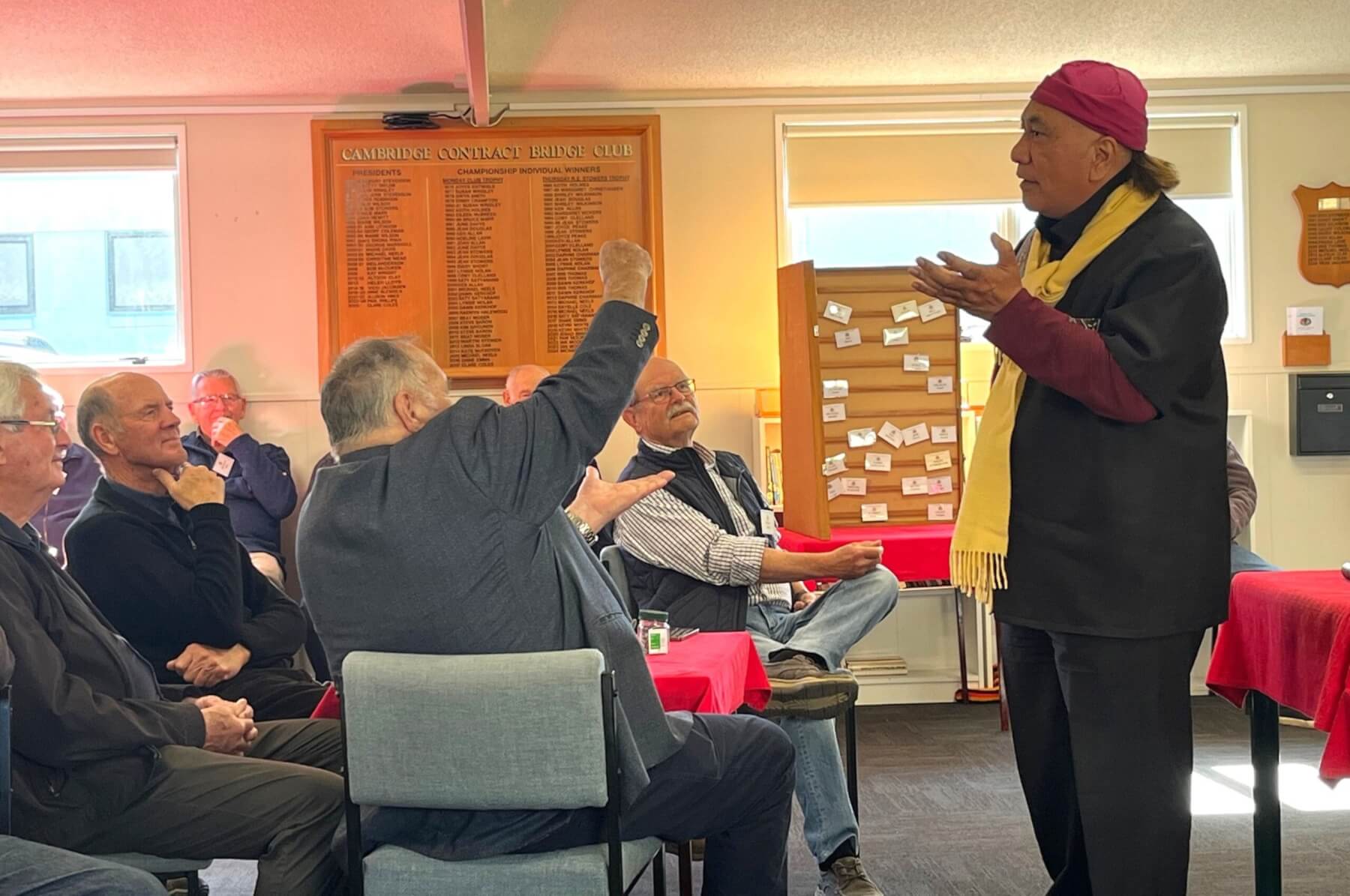
Ulu discussed the basics of cause and effect while in Cambridge. Photo: Viv Posselt
When he spoke at Otago University at the time his honorary doctorate was awarded, he credited the institution for changing his future. It was from Otago University that he graduated in 1981, becoming the first Pasifika computer science graduate in New Zealand. In 1986 he became the country’s first Pasifika person in New Zealand to earn an MBA.
The successful technology entrepreneur, businessman, civic leader and philanthropist said while his initial Otago degree kick-started his career, it was lessons learned through a book he read in 1994 that facilitated its expansion.
That book was Eliyahu M. Goldratt’s ‘The Goal: A Process of Ongoing Improvement’ … Ulu described its message of ‘cause and effect’ as lifechanging. By then, he had already founded the enterprise resource planning software company, Cogita, a company he and his Scots-born wife Margaret Brown went on to sell in 2012 to Silicon Valley’s Epicor. By the time they sold Cogita, it was the top reseller of Epicor software in the world.
Ulu purchased two cartons of The Goal, distributed it to his office staff in Auckland, Rotorua and Wellington with the message they would all meet within a week to discuss how to apply that ‘cause and effect’ message in their business.
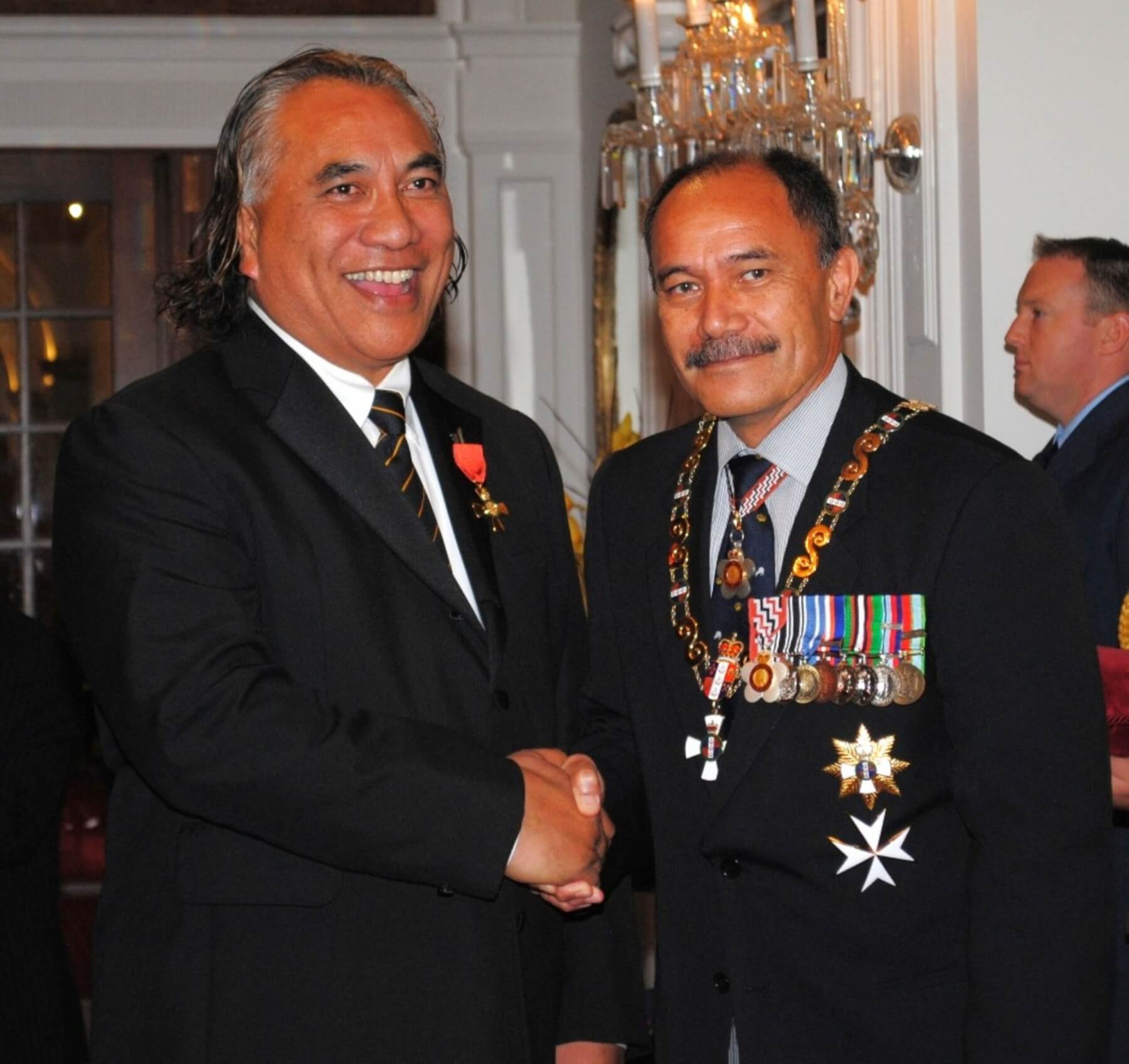
Uluomato’otua (Ulu) Saulaulu Aiono receiving his ONZM in 2012 from then New Zealand Governor General, Sir Jerry Mateparae. Photo: supplied
“If people understood how to more efficiently cause the effect that they are seeking… in their business, their relationships… they would find the shortest path to getting there,” he said. “Identify the effect you are seeking, then track back to find the most efficient way to get there.”
Ulu said that both The Bible – he came from a Christian family in Apia and is now part of the Salvation Army Otahuhu Corps – and The Goal have guided his life. His family migrated to New Zealand in 1960. Life was tough and Ulu and his brother collected bottles to earn money.
Since then, he has amassed an impressive legacy in business and civic affairs, invests in companies and supports worthy initiatives.
He was the founding chairman and angel investor of the Kiwi biotech startup SensorFlo, which is developing a non-invasive blood glucose measurement that could be lifechanging for diabetics.
Harry Mowbray, the father of the Mowbray siblings who founded a multi-million-dollar firm in their Cambridge garage, later replaced Ulu as chairman of SensorFlo. For the past 16 years, Ulu has been a director of Habitat for Humanity (northern region) and has been chairman since July 2022.
Since 2017 he has been involved with the RiseUp Trust, an organisation driving achievement while recognising one’s roots, and in 2023 he started The Cause Collective, aimed at equipping Pacific youth to enter the workforce or further training.
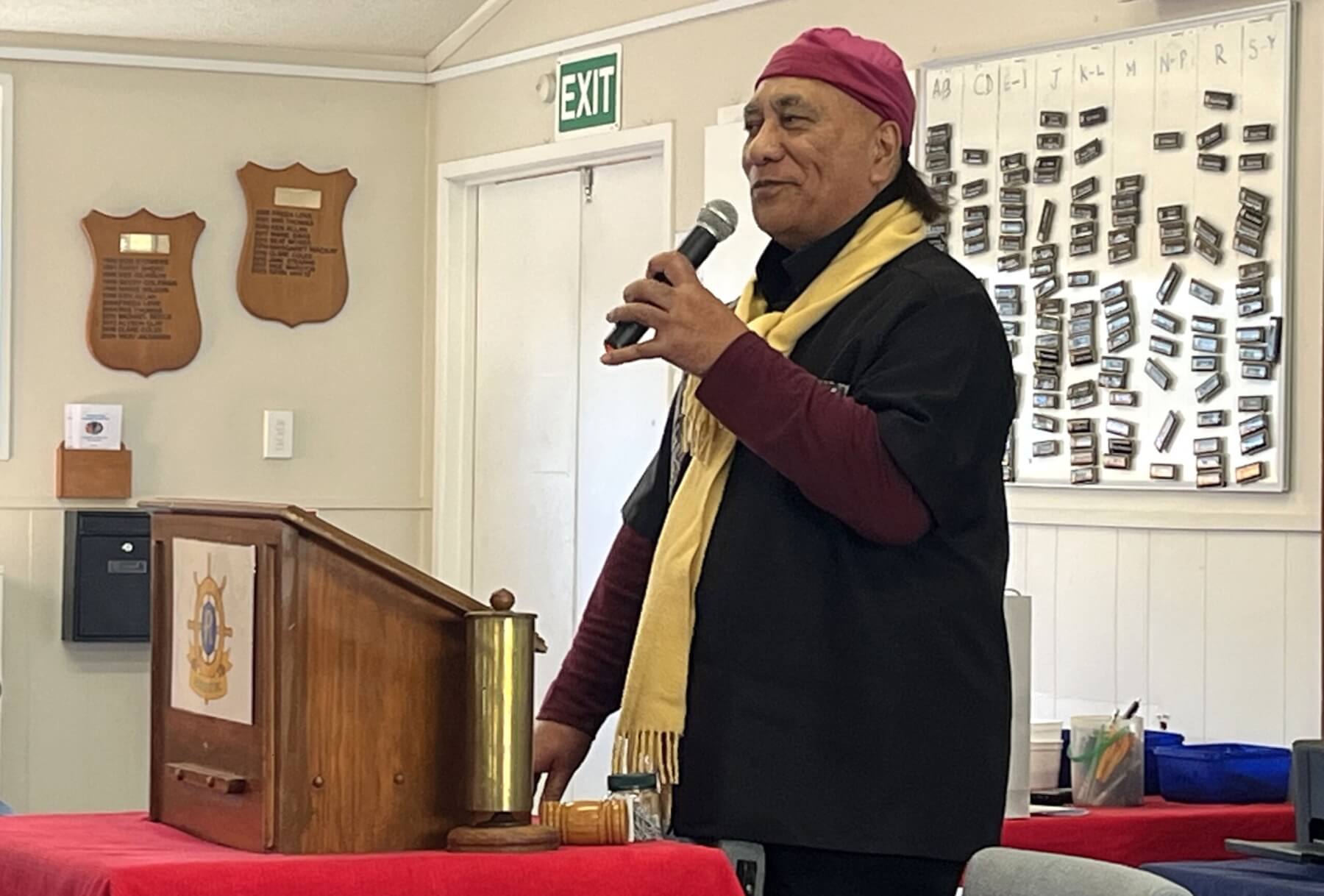
Ulu amusing his Cambridge all-male audience with anecdotes. Photo: Viv Posselt








